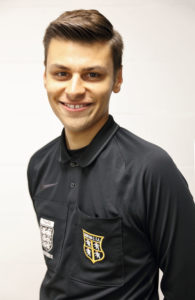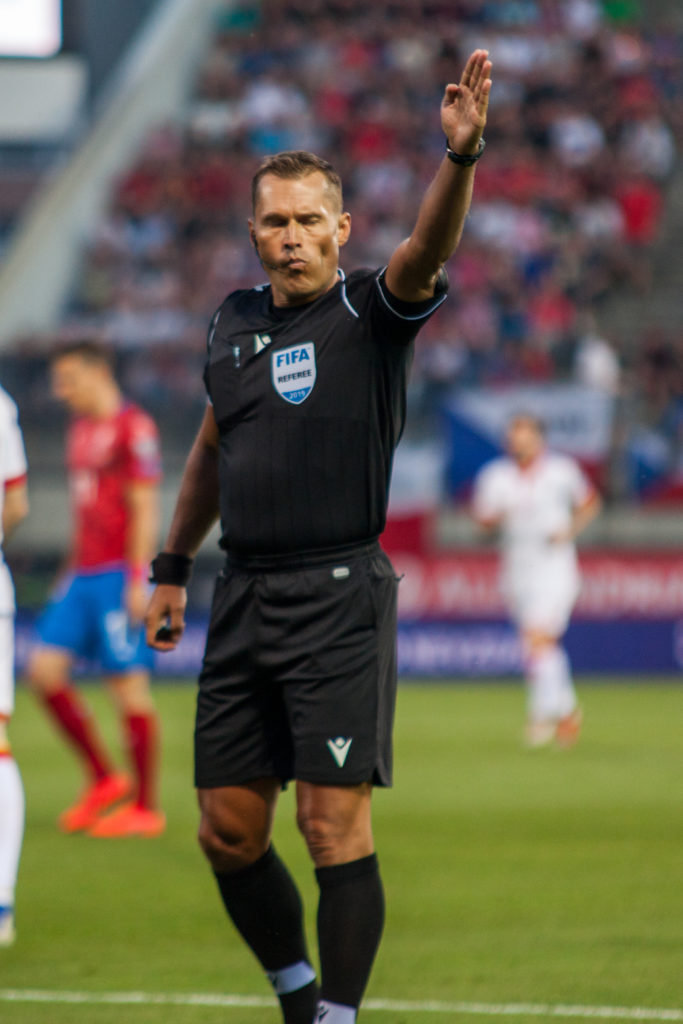The ability to bounce back from an error is a very important skill for a referee to develop if you wish to fulfil your potential. It has a big baring upon your overall performance, referees are human and will make mistakes but the manner in which you bounce back is the key to the quality of game you deliver.
Rebounding from Mistakes Mindset
Your performance has a lot to do with how you handle mistakes during games.
Mistakes often trip referees mentally. Many referees feel peak performance means perfect performance. This mindset causes a lot of negative emotion, in particular, frustration, when the inevitable mistake pops up.
This leads to a split focus–a focus on the past mistakes and trying to perform in the moment! Not the best approach.
Sometimes, referees feel sorry for themselves after a bad performance. It may be hard to admit, but it happens.
The following are various scenarios in several sports:
· A gymnast who fell off the balance beam in a major competition and, immediately, had the feeling, “I always mess up.”
· A baseball player who struck out with the bases loaded in the later innings of a game and said to themselves, “I can’t do anything right?”
· A basketball player who missed several free throws in a game and told themselves, “I am the reason our team lost the game?”
· A footballer who had a bad cup semi-final and thought, “I always choke under pressure.”
Maybe you can identify with these scenarios at some level. Rebounding from mistakes and mishaps is everything in sport.
Nothing is perfect nor will it ever be. So your response to mistakes, losses and mishaps shape your mindset and performance and can linger to the next several competitions.
Let’s use an analogy from a different sport to really drive home this point…
In basketball, it is unreasonable to expect to make EVERY shot. That is the reason REBOUNDING is so important.
You hear coaches, all the time, tell players to follow their shots in order to rebound and put the ball in the hoop.
If a player just hung his head after a missed shot (or felt sorry for himself), he would miss the opportunity to rebound and be successful. The only way to rebound is, first, stop feeling sorry for yourself.
This is true for all sports, even professional athletes…
For example, Luton Town lost four consecutive soccer matches. After the 3-0 loss to Reading, Luton manager Graeme Jones talked about how the team gave up a bit and felt sorry for themselves.
Jones: “We started the game really well and then they scored. Then mentally, we felt sorry for ourselves, ‘what we’re going to do?’ and not enough attacking threat.”
Jones stated he would like to bring in a Mental Training professional to help his team overcome this obstacle his team currently faces.
Jones: “We’re at a point now where maybe we might have to think about going down that [mental training] route, because even if you look at last weeks’ goals, Nottingham Forest didn’t create their two goals, we gave them. Today, we gave them three goals, so it’s an area that I’ve looked at deeply, it’s an area that I understand, it’s a reality for the mental step in the Championship.”
Rebounding from mistakes is a learned mental skill–you are not helpless. So with the help of a Mental Toughness Coach, you can develop mental skills to overcome mistakes and keep your head during the game.
How to Rebound from Mistakes:
Rebounding is a matter of responding to mistakes in a new way. Start by asking yourself a different question: “Can I really be perfect?” “Do others expect me to be perfect?” The answer is NO.
First, challenge yourself about what’s so awful about the mistake?
Next, remind yourself that you can’t change the past. The only thing you can do is more forward and focus on the next phase of play.
The Third Team can offer support to officials looking to improve the way they deal with situations such as those discussed in this blog. If you would like to chat about this please get in touch.
Best Wishes,

Nathan Sherratt
Referee Educator & Managing Director of The Third Team

Nathan Sherratt
Nathan Sherratt, Referee Educator, Resilience Trainer and Managing Director of The Third Team. A Mental Toughness Practitioner based near Durham, North East England.

